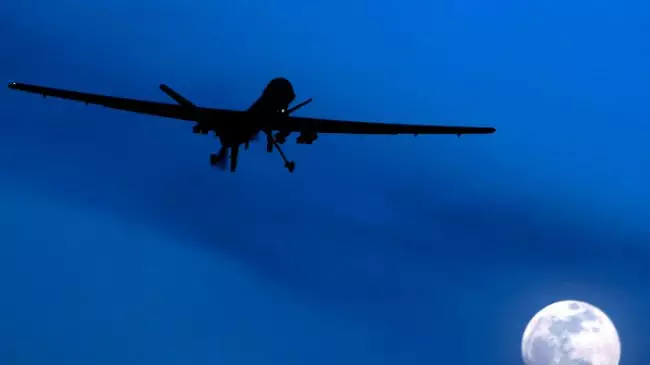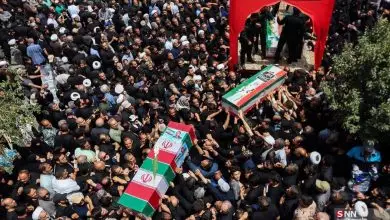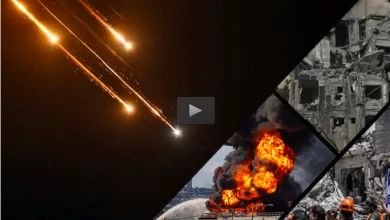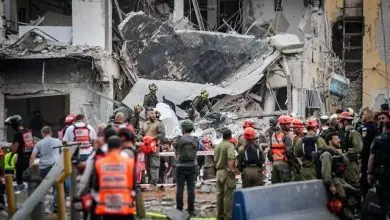US spy war threatens global security

 Movie theaters are packed with audiences clamoring to see Skyfall, the new James Bond thriller, a series now in its 50th year.
Movie theaters are packed with audiences clamoring to see Skyfall, the new James Bond thriller, a series now in its 50th year.
Apparently, you can’t go wrong with well marketed spy movies that still tend to glamorize a profession of stealth and secrecy, often focusing on the tough guy stories that tend to distort how what was once a sideline to diplomacy and information collection has become an industry of global proportions where citizens the world over are being surveilled by faceless and often robotic data miners and electronic technologies.
There may not be enough money for social benefits education, health care and the like, but there is no shortage of funding for the spy business.
The Guardian reports that the Pentagon is doubling the size of its world-wide spy network.
Dominic Rushdie reveals, “The Defense Intelligence Agency (DIA), the Pentagon’s military intelligence unit, is aiming to recruit 1,600 intelligence “collectors” – up from the several hundred overseas agents it has employed in recent years, sources told The Washington Post combined with the enormous growth in the CIA since 9/11 attacks, the recruitment drive will create an unprecedented spy network. “The stars have been aligning on this for a while,” an anonymous former senior US military official involved in planning the DIA transformation told the Post.”
What is aligning those “stars?” Is it real life emulating the silver screen? Is it the successes achieved by the real spying agencies that are already in place?
Not really,
Spying as a vocation is driven in part by paranoia and insecurity, not security, by the need to constantly look for what we don’t know than try to understand what we do.
The more governments fail to contain insurgencies and discontent, the more they reach out for new high tech toys, and exotic gimmickry.
The problem with this approach to “intelligence” is that it often lacks, well, intelligence, that is, the ability to interpret developments and fashion polices that do more than escalate tensions and more conflict.
It all seems out of control. Information is collected because it is there, not necessarily because it matters.
William Binney, a former NSA crypto-mathematician turned whistleblower reveals on RT that everyone in the United States is now under virtual surveillance. All of this information is apparently stored because they can store it, not because they need it.
Says whistleblower Julian Assange, “ It is cheaper to intercept every individual rather than pick particular people to spy on.” The intelligence establishment is vaster than we think. The American Conservative carries a report by former CIA officer Phip Giraldi telling us that what we were told by events in Beghazi was mostly false.
“Benghazi has been described as a U.S. consulate, but it was not. It was an information office that had no diplomatic status. (DS: An “Information office”! To inform who.) There was a small staff of actual State Department information officers plus local translators. The much larger CIA base was located in a separate building a mile away. It was protected by a not completely reliable local militia. Base management would have no say in the movement of the ambassador and would not be party to his plans, nor would it clear its own operations with the U.S. Embassy in Tripoli. In Benghazi, the CIA’s operating directive would have been focused on two objectives: monitoring the local al-Qaeda affiliate group, Ansar al-Sharia, and tracking down weapons liberated from Colonel Gaddafi’s arsenal. Staff consisted of CIA paramilitaries who were working in cooperation with the local militia. The ambassador would not be privy to operational details and would only know in general what the agency was up to. When the ambassador’s party was attacked, the paramilitaries at the CIA base came to the rescue before being driven back into their own compound, where two officers were subsequently killed in a mortar attack.? When the ambassador’s party was attacked, the paramilitaries at the CIA base came to the rescue before being driven back into their own compound, where two officers were subsequently killed in a mortar attack.”
Take the latest in spy fetishism: the drones. They have become known for collateral damage, killing civilians and making bad situations worse.
Pro-Publica, the non-profit news agency reports claims by Washington on drone deaths are false, “only 13 percent of the approximately 2,500 people killed by the drones of the Obama Administration “could be considered militant leaders,” and the assertion that “most of the people who are killed don’t have as their objective to strike the U.S. homeland.”
But no matter building drones creates jobs, deploying them enhances the military and funding them has become a priority of a Congress that is heavily lobbied by, who else, the Drone industry.
ICH reports, “More than $8 million in campaign contributions from drone manufacturers and operators has flowed into the coffers of the 60 members of the House Unmanned Systems Caucus.”
Promoters of more military spending always find savvy ways of generating fear and convincing the public their products are needed and saving lives.
In fact, new Intelligence facilities are underway and not only in the US.
CNN reports: ‘The U.S. Army Corps of Engineers is receiving bids to build a five-story complex for the Israeli Air Force, or IAF, near Tel Aviv. The facility, mysteriously dubbed “site 911,” will be built under the auspices of the Foreign Military Sales program and is expected to cost the U.S. between $25 million and *100 million, according to a solicitation for bids posted on a U.S. government website. Only U.S. construction firms are able to bid on this contract.”
Is the name, “Site 911” someone’s idea of a joke?
Increasingly news reports about the spy world are morphing with the images we have seen on film, as if there is an “intelligence gap” between the worlds of fiction and “faction.”







